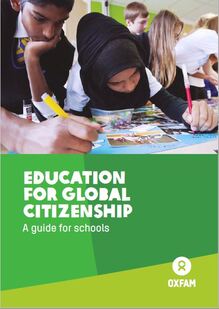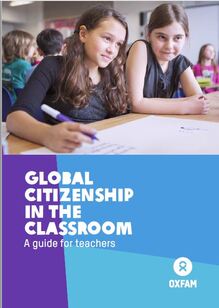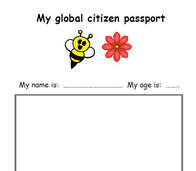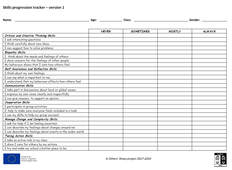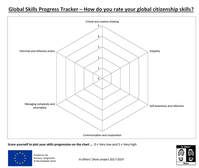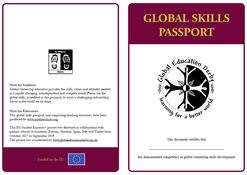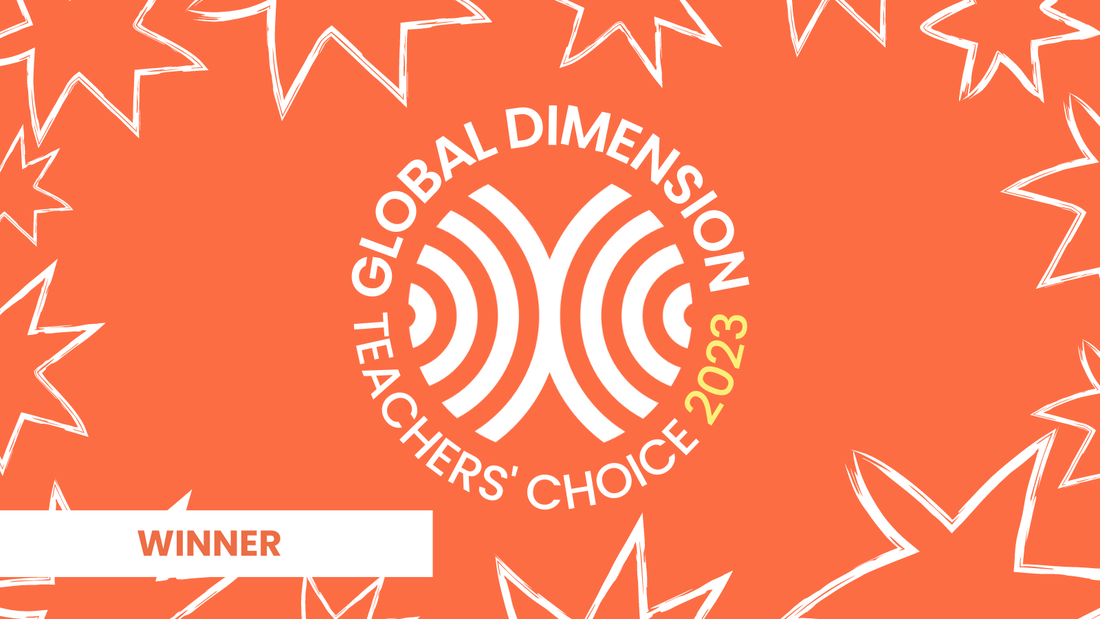Creating the Global Skills Passport
How it began
The In Others' Shoes project spanned educational establishments in seven European countries. It involved children from across the school age range from as young as 5 years old, up to 19 years old. Educators came from a wide spectrum of schools with extremely varied demographics, priorities, specialisms, languages and challenges. A common commitment to explore the impact of globalisation and migration, improve intercultural understanding and embed global skills into our professional practice, was our meeting place.
Creating a measuring tool applicable to all was challenging and several approaches were tried out. Transnational Project Meetings were never dull as we shared ideas and tried to make sense of our conundrum. Expertise, and sharing successful approaches that worked in our individual classrooms, led the way.
How it began
The In Others' Shoes project spanned educational establishments in seven European countries. It involved children from across the school age range from as young as 5 years old, up to 19 years old. Educators came from a wide spectrum of schools with extremely varied demographics, priorities, specialisms, languages and challenges. A common commitment to explore the impact of globalisation and migration, improve intercultural understanding and embed global skills into our professional practice, was our meeting place.
Creating a measuring tool applicable to all was challenging and several approaches were tried out. Transnational Project Meetings were never dull as we shared ideas and tried to make sense of our conundrum. Expertise, and sharing successful approaches that worked in our individual classrooms, led the way.
|
Finding a shared voice and framework
We chose the Oxfam global citizenship guides as a unifying point of reference: Global Citizenship Guides (openrepository.com) We liked the fact that it provides a model for progression across each area of global learning - knowledge and understanding, skills, attitudes and values. This publication provided the shared language, concepts and framework we agreed to build around. This influence is clearly reflected within the lesson plans and the evaluation tools we produced. The global skills commonly referenced are critical and creative thinking, empathy, self awareness and reflection, communication and cooperation, ability to manage complexity and uncertainty and informed and reflective action. The teaching strategies outlined in an accompanying Oxfam handbook were a source of inspiration and started everyone thinking about the shape our global skills passport evaluation tools could take; Global Citizenship Guides (openrepository.com) |
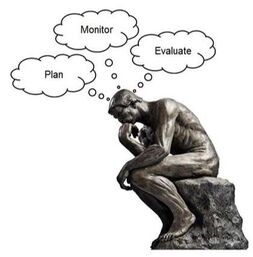
Principles behind our approach
Self-evaluation, supporting young people to take responsibility for their own learning and to find their own ways to describe and discuss it, was identified as a critical component. Participatory learning was at the core of our methodology. The process of active learning and reflection was placed at the centre of our work. How else were we going to equip young people with the global citizenship skills we wanted to develop and refine? Dialogue, group work, cooperation and exploration played a massive role.
Our training for the Global Teachers Award and Philosophy for Children combined to help us imagine what a global skills passport might include. What type of activity would help us, as educators, and our students move forward? What would we find useful ourselves? We saw how stepping into a facilitation role during teaching can support improved metacognition and self regulation for all participants. https://cambridge-community.org.uk/professional-development/gswmeta/index.html
From our shared experiences of learning, sharing, observing and reflecting together, over the duration of the project, the following documents emerged to create the global skills passport. Click on the images below to read more and download the documents:
Self-evaluation, supporting young people to take responsibility for their own learning and to find their own ways to describe and discuss it, was identified as a critical component. Participatory learning was at the core of our methodology. The process of active learning and reflection was placed at the centre of our work. How else were we going to equip young people with the global citizenship skills we wanted to develop and refine? Dialogue, group work, cooperation and exploration played a massive role.
Our training for the Global Teachers Award and Philosophy for Children combined to help us imagine what a global skills passport might include. What type of activity would help us, as educators, and our students move forward? What would we find useful ourselves? We saw how stepping into a facilitation role during teaching can support improved metacognition and self regulation for all participants. https://cambridge-community.org.uk/professional-development/gswmeta/index.html
From our shared experiences of learning, sharing, observing and reflecting together, over the duration of the project, the following documents emerged to create the global skills passport. Click on the images below to read more and download the documents:
© Global Education Derby 2020. All rights reserved. The In Others' Shoes resources are copyright but may be reproduced by any method without fee for teaching purposes.
For copyright in any other circumstances, for re-use in other publications or for translation or adaptation, written permission must be obtained from Global Education Derby: http://www.globaleducationderby.org.uk/contact.html
Global Education Derby is a Registered Charity No. 1049591 and a Company Limited by Guarantee registered in England & Wales No. 2642026.
For copyright in any other circumstances, for re-use in other publications or for translation or adaptation, written permission must be obtained from Global Education Derby: http://www.globaleducationderby.org.uk/contact.html
Global Education Derby is a Registered Charity No. 1049591 and a Company Limited by Guarantee registered in England & Wales No. 2642026.

